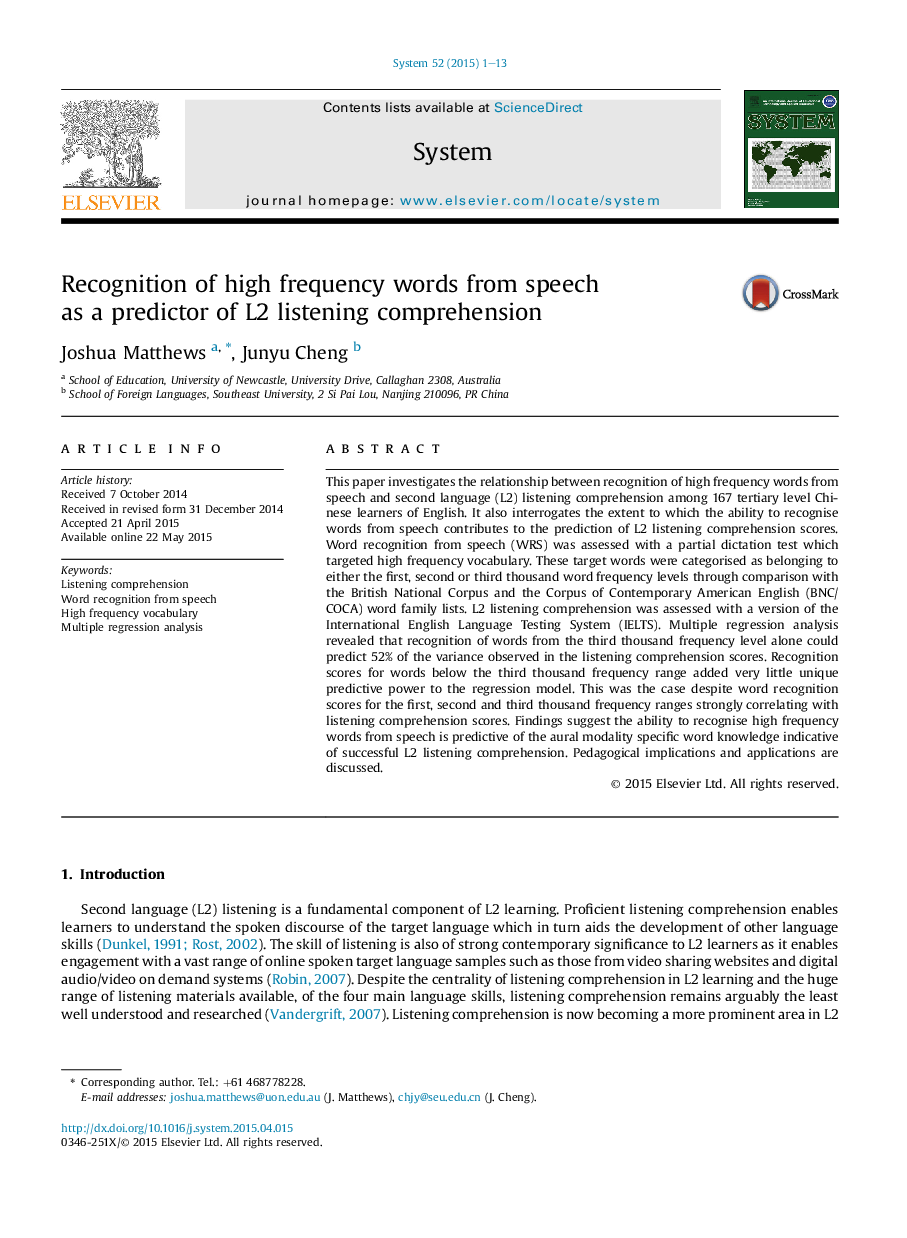| Article ID | Journal | Published Year | Pages | File Type |
|---|---|---|---|---|
| 372971 | System | 2015 | 13 Pages |
This paper investigates the relationship between recognition of high frequency words from speech and second language (L2) listening comprehension among 167 tertiary level Chinese learners of English. It also interrogates the extent to which the ability to recognise words from speech contributes to the prediction of L2 listening comprehension scores. Word recognition from speech (WRS) was assessed with a partial dictation test which targeted high frequency vocabulary. These target words were categorised as belonging to either the first, second or third thousand word frequency levels through comparison with the British National Corpus and the Corpus of Contemporary American English (BNC/COCA) word family lists. L2 listening comprehension was assessed with a version of the International English Language Testing System (IELTS). Multiple regression analysis revealed that recognition of words from the third thousand frequency level alone could predict 52% of the variance observed in the listening comprehension scores. Recognition scores for words below the third thousand frequency range added very little unique predictive power to the regression model. This was the case despite word recognition scores for the first, second and third thousand frequency ranges strongly correlating with listening comprehension scores. Findings suggest the ability to recognise high frequency words from speech is predictive of the aural modality specific word knowledge indicative of successful L2 listening comprehension. Pedagogical implications and applications are discussed.
